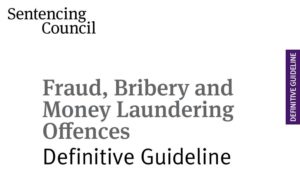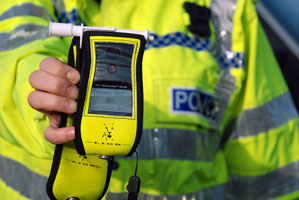Monthly Archives: November 2018
The 2015 documentary series Making a Murderer follows the story of two men from Wisconsin who were convicted of sexually assaulting and murdering a woman.
One of the convicted was an impressionable teenager called Brendan Dassey. Dassey’s conviction was overturned in 2016 (and confirmed on appeal in 2017) on the basis that his ‘confession’ to the murder was coerced by police officers who exploited his vulnerable character.
What is the law in the England and Wales?
Provisions in the Police and Criminal Evidence Act 1984 allow courts to reject confessions of this kind on the basis that they were obtained ‘oppressively’ or are unreliable.
The relevant statutory provisions relating to the admissibility of confessions are ss. 76(2)(a) and (b) and 77 of the Act.
What does “oppressive” mean?
The term ‘oppressive’ has caused problems for the courts. It seems to be agreed that oppression implies some “impropriety” which compromises the confession’s veracity (Fulling [1987] QB 426).
Uncertainty exists, however, as the same sort of behaviour in different cases has led to the confession being excluded in one but not the other (see Paris (1993) 97 Cr App R 99; L [1994] Crim LR 839).
What about unreliability?
Aside from oppression, confessions may be excluded on the basis of unreliability. This unreliability may come about via “anything said or done” or something problematic concerning the circumstances in which the ‘confession’ was made.
An important point to note is that the suspect’s own conduct cannot undermine a confession (Goldenberg (1988) 88 Cr App R 285).
Another important reason to exclude a confession on the basis of unreliability is where the suspect is mentally unfit. A separate section of the Police and Criminal Evidence Act 1984, section 77, deals with this. In particular, the act seeks to protect suspects who may be suggestible and may simply go along with police officers’ leading questions about an alleged offence.
Deciding on the admissibility of confessions
The actual process for deciding whether a confession can be admitted is a ‘voir dire’. That is essentially a mini-trial within or alongside the main trial. Section 76(2) of PACE gives guidance on this point.
The prosecution must prove to the criminal law standard that the confession was not obtained in the way alleged by the defence, otherwise it will be excluded. And, although there is some disagreement, the standard position appears to be that the defendant’s evidence at the voir dire cannot be admitted during any trial for the substantive offence (Wong Kam-ming [1980] AC 247).
How we can help advise on admissibility of confessions.
Many of the problems that can arise with confessions will be removed if you have a solicitor with you to provide advice when you are interviewed.
As a result, if you are arrested or know that the police wish to speak to you about any offence then make sure you insist on your right to free and independent legal advice.
The advantages of such early legal advice can be found here.
If you have already been interviewed or face court proceedings we will be able to advise you about the admissibility of any confession you are said to have made at any stage where you dispute the accuracy or reliability of it. Legal aid may well be available to fund your defence at court.
You can find your nearest office here.

Alternatively you can use the contact form below:
Contact
Monthly Archives: November 2018
There are two distinct criminal offences of harassment. One is of harassment putting people in fear of violence and one without.
Stalking is a similar but separate offence and is not covered in this article.
You can, however, read more about the offence of stalking here.
What does an allegation of harassment involve?
There has to be a course of conduct. This can, however, involving as few as two incidents directed towards another person or persons.
The dictionary definition of harassment is to “torment by subjecting to constant interference or intimidation”.
The law, though, does not provide a comprehensive definition. As a result there are many actions that could be foreseen to alarm or cause a person distress that would not constitute harassment.
Alternatively, the cumulative effect of a number if incidents that on their own might not be unlawful could con
The offence is aimed at conduct that alarms or causes a person distress and which is oppressive and unreasonable.
What do the prosecution have to prove for harassment?
- That there is a course of conduct
- which amounts to harassment of another, and
- which the defendant knows, or ought to know amounts to harassment of another.
Additionally, for the more serious offence the prosecution has to prove:
- that the course of conduct causes another to fear that violence will be used against him; and
- that the defendant knows or ought to know that his course of conduct will cause another to fear that violence would be used against him
How would I know it is harassment?
The test of whether you ought to know that the course of conduct amounts to harassment is whether a reasonable person, in possession of the same information, would think the conduct amounted to harassment.
The same test applies in respect of fear of violence.
Are there any time limits for bringing a prosecution?
At least one of the incidents has to have occurred within six months of the charge for the basic offence without violence. There is no such time limit for the aggravated offence.
What about defences?
There are three available defences for the basic offence:
- that the course of conduct was for the purpose of preventing or detecting crime
- that it was conducted under a rule of law
- that it was reasonable in the circumstances.
Additionally, it is a defence for the more serious offence if the course of conduct was reasonable for the protection of the defendant or another, or for the protection of their or another’s property.
What sentence could I get for harassment?
For the offence without violence, the basic offence of harassment, up to six months imprisonment can be imposed. This increased to 2 years if the offence is racially aggravated.
For the more serious offence involving fear of violence the maximum sentence was 5 years and is 10 years for offences committed on or after 3rd April 2017. Again, this is increased where the offence is racially aggravated to 7 or 14 years, again dependent on the date of the offence.
Restraining Orders
A restraining order can also be imposed. The aim of such an order is to protect the victim of the offence from further incidents, contact or risk of violence.
Such an order can prevent contact with the victim and provide for an exclusion zone around their address. A restraining order can be imposed even if you are acquitted of the offence.
How we can assist
The law in respect of harassment and the potential defences is complicated, and there are other specific offences of harassment (for example of debtors) that are not covered in this article.
As a result, if you are arrested or know that the police wish to speak to you about an offence then make sure you insist on your right to our free and independent legal advice.
The advantages of such early legal advice can be found here.
If you have already been interviewed or face court proceedings we can still make a real difference to the outcome of your case. Legal aid may well be available to fund your defence at court.
You can find your nearest office here.

Alternatively you can use the contact form below:
Contact
Monthly Archives: November 2018
There are two main offences that are prosecuted in relation to benefit fraud. One involves dishonesty on behalf of the benefit claimant while the other does not.
Benefit fraud – the dishonesty offence
It is an offence to dishonestly make a representation in order to obtain benefit. This offence includes circumstances where there has been a dishonest failure to promptly notify a change in circumstances, as well as making a claim that is dishonest from the outset.
Benefit fraud where a claimant is not dishonest
It is an offence to knowingly make a false statement to obtain benefit. Again this can be in an initial claim for benefits or failing to give prompt notification of a change in circumstances.
What does this all actually mean?
The following definitions are given:
Dishonesty
This has the normal meaning that is used in criminal offences.
The lesser offence, of course, does not require dishonesty but does require proof of knowingly failing to notify.
The test for dishonesty was recently revisited by the Supreme Court and the result may well be that it is now easier to prosecute for dishonesty based benefit fraud.
Change in circumstances
There must be proof that the offender knew there was a change of circumstances and that the change would have effected a change in benefit.
Such changes in circumstance might include starting to live with a partner or gaining employment, or an inheritance leading to a change in finances for the better.
“Promptly notify”
Prompt is to be given its natural meaning and is a matter of fact. It is for the prosecution to prove that it was not prompt. It is therefore essential to explore all of the surrounding circumstances as this may provide a defence, not only mitigation.
Are there other offences?
There are other offences of fraud and false accounting related to benefits that are not covered in this article.
What is the likely sentence for benefit fraud?
 The non-dishonesty benefit fraud offence an only be dealt with in the Magistrates’ Court and carries a maximum term of imprisonment of 3 months.
The non-dishonesty benefit fraud offence an only be dealt with in the Magistrates’ Court and carries a maximum term of imprisonment of 3 months.
The offence involving dishonesty can be dealt with at the Magistrates’ Court or the Crown Court. At the Crown Court it carries a maximum of seven years imprisonment.
The main factors for consideration in sentencing will be:
- the length of time of the over payment
- the total value of benefits overpaid
- whether or not the claim was dishonest from the outset.
A claim that is of high value, over a sustained period and which was dishonest from the beginning is more likely to attract a term of imprisonment.
The full sentencing guideline can be found here.
How can we help you defend a benefit fraud allegation?
Our advice, as always, is to seek legal advice as soon as you know that you are being investigated for an offence.
Early legal advice from an expert criminal solicitor may help you set out any defence that you might have in interview, or provide mitigation that might help you avoid a prosecution through the courts.
If a case gets to court then benefit fraud offences frequently generate vast quantities of paperwork. Our solicitors, litigators and advocates have a great deal of experience in considering such evidence. We will help you prepare your defence or mitigation upon a guilty plea.
Our involvement may mean a lesser value is given to any over payment. This can have a direct impact on the potential sentence.
If you are in receipt of benefit then you are likely to receive free legal help under the legal aid scheme at the interview stage.
You can read more about the availability of criminal legal aid here.
You can find your nearest office here.

Alternatively you can use the contact form below:
Contact
Monthly Archives: November 2018
In a dramatic climax the jury returned guilty verdicts in the case of R v Sally Metcalfe, the hapless Coronation Street Councillor caught up in fraud, money laundering and bribery.
As viewers will know, poor Sally appears to be a victim of Duncan’s cunning plan to divert blame elsewhere.
Her fate now lies in the hands of the trial judge, but a custodial sentence appears to be a real possibility.
But, what options does Sally Metcalfe have in relation to appeal?
Sally and her legal team must move quickly as an appeal against conviction must be lodged within 28 days of the verdict. An application to appeal can be made ‘out of time’ but there must be a good reason for any delay.
Since we can be rightly critical of her legal team, one of the first decisions may well be whether to instruct new solicitors and counsel to advise.
But whatever the decision made in respect to legal representation, it is important to note that appeals are not to be viewed as an automatic ‘second bite of the cherry’.
The Court of Appeal will only overturn a conviction if it is ‘unsafe’, so Sally’s legal team will need to identify something that went wrong in the trial process; if nothing did go wrong then an attempt at appeal would simply be futile, raising false hopes.
Sally’s best bet will be to continue the battle to clear her name in the hope of finding evidence that points towards Duncan and his framing of Sally.
This is referred to as ‘fresh evidence’ and must be genuinely new evidence that was not available to Sally and her lawyers at the time of trial.
Of course, the case of Sally Metcalfe isn’t real, and we can expect the scriptwriter to exercise some editorial licence when it comes to explaining the intricacies of the law, so don’t take too much notice of the legal wrangling as it inevitably unfolds in future episodes.
In the real world, a wrongful conviction is a most dreadful experience for both defendants and their families, exacting the cruellest toll.
How can we help in your case?
If you require advice in relation to any appeal matter it is imperative that you act quickly. Our team of experienced lawyers are here, ready to take you through the process.
You can read more about how to appeal a Crown Court sentence here.
You can find your nearest office here.

Alternatively you can use the contact form below:
Contact
Monthly Archives: November 2018
A suspended sentence is a term of imprisonment that is suspended so that you do not go into custody immediately. Further, you will not go into custody if you comply with the conditions attached to the order.
Who can get a suspended sentence?
In the Magistrates’ Court, any sentence of 6 months’ imprisonment (12 months for two or more either-way offences) or less can be suspended. In the Crown Court, any sentence of 24 months or less can be suspended.
The minimum length of imprisonment for a suspended sentence is 14 days.
It follows, therefore, that if your offending is deserving of a sentence above the maximum level, or you are sentenced as a dangerous offender, you will not be able to receive a suspended sentence.
A suspended sentence is also not available for youths.
When can a sentence be suspended?
The sentencing court will first consider whether or not a custodial sentence should be imposed. In legal terms the court decides whether the “custody threshold” has been passed.
If custody of one of the lengths discussed above is imposed, the Court can then move on to decide whether it can be suspended or not.
In considering whether the sentence can be suspended the Court will look at the particular circumstances of the offence and offender and consider a sentencing guideline that applies to this scenario.
Factors to consider would be:
- whether there is a realistic prospect of rehabilitation
- strong personal mitigation
- the impact of immediate custody on others.
Mitigating against a suspension would be that
- the offender is a risk or danger to the public
- the most appropriate punishment is immediate custody
- a poor history of compliance with court orders.
How long can it be suspended for?
The sentence of imprisonment can be suspended for a period from six months up to two years. This is called the ‘operational period’.
What conditions may be imposed?
A sentence is suspended on condition that you do not commit any further offences during the operational period. In some circumstances an order may have that single condition.
Additionally, you can have a suspended sentence order that is subject to further requirements similar to this in a community order. This can include
- unpaid work
- a curfew
- supervision with the Probation Service.
If you are subject to such an order, it is also suspended on condition that you comply with the requirements imposed.
What happens if I breach the order?
You can breach an order by either committing an offence within the operational period or failing to comply with any requirements that are imposed.
The starting point that will be adopted by the court if you are in breach of an order is to activate the period of imprisonment. The length of imprisonment may be reduced to reflect the level of compliance with the order and any of the requirements.
If it is unjust in the circumstances to activate the sentence then the court has other options. You may be
- fined for the breach,
- made subject to further or more onerous requirements
- the operational period may be extended.
How can we help?
As well as advising you whether you might be able to receive a suspended sentence, we will also be able to help you put yourself in the best position for the court to treat you leniently.
This process can start as early as advice prior to a police interview under caution. As a result, if you are arrested or know that the police wish to speak to you about any offence then make sure you insist on your right to free and independent legal advice and ask for VHS Fletchers.
The advantages of such early legal advice can be found here.
If you have already been interviewed or face court proceedings we can still make a real difference to the outcome of your case. Legal aid may well be available to fund your defence at court.
Some examples of cases where we have helped secure a suspended sentence for our clients can be found here:
Conveying Articles into Prison
You can find your nearest office here.

Alternatively you can use the contact form below:
Contact
Monthly Archives: November 2018
Restorative Justice, or ‘RJ’ as it is sometimes known, is a way of holding offenders to account and can be used as an alternative to a caution or conviction, or alongside a sentence.
What happens with Restorative Justice?
Restorative Justice gives a victim the opportunity to meet or communicate with an offender to help the offender understand the impact of the crime. It can also provide the offender with the chance to make amends.
This may be done in a face to face meeting or by way of a written apology. Alternatively the offender could make amends to the community rather than to the victim directly.
Communication takes place in a controlled environment, if the meeting is face to face. A facilitator will also be present. The meeting would centre on the harm caused and ways to repair that harm.
When can Restorative Justice be used?
For any kind of communication to take place the victim must be happy to participate. The offender will also have to have admitted the offence and be willing to take part.
Gareth Thomas, the former Wales rugby captain, chose to deal with his complaint in this way after he was the victim of a homophobic assault.
The young person involved admitted the offence, and it is being dealt with by way of Restorative Justice rather than via a caution or through Court.
Mr Thomas said he thought that the offender could learn more through Restorative Justice than any other way.
Restorative Justice can also be used when an offender has received a prison sentence. In another case, Cathryn Walmsley of Bolton was assaulted, the offender pleaded guilty to causing grievous bodily harm with intent, and a four-year term of detention was imposed.
Mrs Walmsley read a victim impact statement out in court to set out how the offence had affected her. She also said that she would like to sit down with the offender to discuss what he did because she believes that this may give her “closure”.
It may also assist the offender, and it is hoped in these circumstances that it would reduce the likelihood of any future offending.
Does it work?
Research undertaken by the government in a seven-year period found that there was an 85% victim satisfaction rate with the process following the use of restorative justice. There was a also a reduction in the frequency of re-offending of 14%.
How can we help?
Many decisions relating to whether Restorative Justice is an appropriate alternative to a police caution or prosecution will be made at the point of police interview under caution or shortly afterwards.
We offer free and independent legal advice at the police station or anywhere else where you may be interviewed by the police.
A number of benefits to seeking advice can be found here, but an important benefit is that we will be able to advise you as to whether restorative justice could be available in your case and make representations or negotiate with the police on your behalf.
You can find your nearest office here.

Alternatively you can use the contact form below:
Contact
Monthly Archives: November 2018
Importation of Indecent or Obscene Articles – a Childlike Sex Doll?
There has been a surge of people charged with importation of indecent or obscene articles, contrary to the Customs and Excise Management Act 1979 and the Customs Consolidation Act 1876.
On the face of it that might seem strange. Why are people suddenly being arrested and sent to prison for an offence under a statute that is 141 years old?
A Gap in the Law?
The answer is that the Crown Prosecution Service are using the old offence to address a very modern gap in the law. The surge in cases follows a similar increase in seizures of childlike sex dolls. Border Force officers have seized 123 such objects since March 2016. This figure would increase if the number of seizures by police forces were also known.

The ‘gap in the law’ arises because it is not illegal to possess a childlike sex doll.
The Crown Prosecution Service has moved to address this. In June 2017, in the ‘first case of its kind in the UK’, a man was convicted of importing an indecent object. He had purchased a doll online, it was shipped from Hong Kong but was then seized en route to him at East Midlands Airport.
VHS Fletchers are no strangers to this development having also represented clients charged with an offence in similar circumstances.
The Law
The offence itself is contrary to section 50(3) Customs and Excise Management Act 1979. This states that it is an offence for a person to import any goods contrary to any prohibition, with the intention to evade that prohibition.
It is what is called an either-way offence, so can be dealt with in the Magistrates’ Court or the Crown Court. It carries a maximum sentence of seven years at the Crown Court.
Where does it say that a childlike sex doll is prohibited?
Section 42 of the Customs Consolidation Act 1876 says:
“The goods enumerated and described in the following table of prohibitions and restrictions inwards are hereby prohibited to be imported or brought into the United Kingdom.”
The ‘table of prohibition’ is as follows:
“Indecent or obscene prints, paintings, photographs, books, cards, lithographic or other engravings, or any other indecent or obscene articles.”
It is for the Prosecution to prove that the Defendant either imported the item or was concerned in its importation.
In that case, lawyers for the defendant had argued the doll was not covered by the law. His Honour Judge James dismissed the argument, saying “any right-thinking person” would find the doll obscene. This decision may raise the interesting question of where we draw the line regarding obscenity. However, for the purposes of this specific offence (i.e. childlike sex dolls) it is difficulty to disagree with the Judge in that case.
Some further information about what constitutes an obscene article can be found here.
The prosecution has issued some guidance on the considerations prior to bringing proceedings. These can be found here.
Sentencing Guidelines
There are no sentencing guidelines for this offence. The maximum sentence is seven years. The reported cases so far seem to be attracting sentences of around two years, although clearly each case must be judged on its individual facts.
Further Thoughts
As it stands, possession of a childlike sex doll on its own is not an offence. There must be proof of importation. If the item was manufactured or warehoused in the UK prior to purchase, the purchaser has not committed an offence.
Considering the level of press interest that this offence has now received, we might have expected Parliament to address this issue with legislation by now. Of course, other more pressing issues are tying up the time of Parliament.
An alternative view, however, is presented by Juliet Grayson, chair of the Specialist Treatment Organization for the Prevention of Sexual Offending (StopSO). StopSO is a charity which prevents sexual offending through therapy. She has suggested that just as methadone is used to treat recovering heroin addicts, childlike sex dolls can be used to treat paedophiles
This view raises a number of questions as to how it would be managed. If it is closely monitored, assists in the rehabilitation of an offender and prevents re-offending (much like the methadone example that she gives) it must be worth consideration.
On a final note…
It occurs that while possession of such an item is not illegal, a photograph of one could be. If the doll is, for example, photographed naked it could be argued that that photograph then constitutes a ‘pseudo’ indecent image of under the Protection Act 1978.
Contact an expert criminal solicitor for advice
VHS Fletchers is one of the few solicitors’ firms in the country who has the experience of representing a client charged with this offence.
The law is complicated and the potential consequences of a prosecution severe.
As a result, if you are arrested or know that the police wish to speak to you about an offence relating to the importation of an obscene article make sure you insist on your right to free and independent legal advice.
The advantages of such early legal advice can be found here.
If you have already been interviewed or face court proceedings we can still make a real difference to the outcome of your case. Legal aid may well be available to fund your defence at court.
You can find your nearest office here.

Alternatively you can use the contact form below:
Contact
Monthly Archives: November 2018
In legal shorthand we often refer to section 18 or 20 offences. These refer to specific offences under the Offences Against the Person Act 1861. They are offences that involve allegations of serious violence causing either Grievous Bodily Harm or Wounding.
What is the difference between section 18 and section 20?
The most serious form of assault, short of attempt murder, is an offence under Section 18 Offences Against the Person Act 1861. This involves the causing of either Grievous Bodily Harm (GBH) or Wounding intending to cause such a serious injury.
An offence involving intent under section 18 carries a maximum sentence of life imprisonment. The same offence committed without intent under section 20 has a maximum sentence of only five years.
As a result, the offence can be committed in different ways:
- wounding with intent
- causing GBH with intent
- wounding without intent
- causing GBH without intent
‘Unlawfully and Maliciously’
For an offence to be committed unlawfully and maliciously it means that there is no defence such as self-defence, force used for preventing crime or the defence of property or another.
There are also some other technical differences between the two offences.
What is Grievous Bodily Harm?
GBH or grievous bodily harm is really serious bodily harm. It will include include broken limbs for example but can also include psychiatric injury.
What is wounding?
Wounding is where the skin is broken, either internally or externally.
Section 18 – the intent offence
For the more serious offence intent to cause serious injury or wounding is required.
A jury needs to be satisfied that the offender intended to cause the harm. They will do so by considering all of the relevant circumstances, including what the offender did and what he said about it.
What about weapons?
The use of a weapon will make any offence more serious. Weapons include knives and bottles, or throwing acid. Where feet are used to kick somebody they are treated as a weapon. Biting will also be an aggravating feature in any case.
Section 20, the offence without intent
In such a case it is accepted that there was no intention to cause the injury. For example this might be the case involving a single punch that causes a person to fall backwards leading to a serious injury or wound.
A jury will be helped to decided on this issue by looking at evidence of the manner in which the assault was carried out or your behaviour at the time and afterwards.
What sentence will I get?
For an offence committed with intent it is almost inevitable that a term of imprisonment will be imposed. The guidelines range from 3 years for a less serious offence through to 16 years for the more serious offences.
Examples of sentences imposed are:
- nine years when a bottle was used to strike the face requiring thirty stitches
- nine years also imposed for causing a fractured arm with a baseball bat, knocking down and driving over a police officer, kicks to the head on the floor causing extensive facial fractures.
For offences under section 20 the maximum sentence is 5 years, so a non-custodial sentence is more likely. The guidelines range from a community order to 4 years imprisonment.
Instruct an expert criminal law solicitor to represent you
The difference in sentencing for the absence of intent means that this issue has to be considered carefully in the context of all of the evidence.
We can advise you whether intent and other offence elements can be proven, and the prospects, if appropriate, of a plea to the lesser offence being acceptable to the prosecution and the court.
The law is complicated and the potential consequences of a prosecution severe.
As a result, if you are arrested or know that the police wish to speak to you about an offence relating to grievous bodily harm or wounding then make sure you insist on your right to free and independent legal advice.
The advantages of such early legal advice can be found here.
If you have already been interviewed or face court proceedings we can still make a real difference to the outcome of your case. Legal aid may well be available to fund your defence at court.
You can find your nearest office here.

Alternatively you can use the contact form below:
Contact
Monthly Archives: November 2018
Prosecuting those who publish obscene articles is not prudish, despite what certain commentators would argue. It is an offence under section 2 of the Obscene Publications Act 1959.
The maximum sentence of five years’ imprisonment for offences involving obscene articles may be warranted for activities which have disturbing and harmful knock-on effects.
Laws of this type remind us that free-speech and expression is subject to lawful limitations.
The relevant legislation
According to section 1 of the 1959 Act, one must decide whether the effect of the object in question is:
“…such as to tend to deprave and corrupt persons who are likely, having regard to all relevant circumstances, to read, see or hear the matter contained or embodied in it.”
An important line taken in the case law is that obscene articles must go beyond simply being rude or disgusting. The impact upon those who come into contact with and deal with the material is central to the question.
Defining the terms
In the case of Calder & Boyars Ltd from 1968, the court considered that the term ‘obscenity’ could encompass a wide range of misconduct.
The 1972 case of DPP v Whyte noted that while not everybody must be offended or influenced by the material the effect must be more than ‘minuscule’.
What does the term ‘article’ include? It can involve virtually anything capable of displaying some kind of information and/or broadcasting audio and video content. That description includes things which are not primarily made for these purposes.
The term ‘publish’ has been interpreted remarkably widely. For example, a single sale made by a developer of obscene photographs or creator of paedophilic writing to one customer can constitute publication. (Taylor [1995]; GS [2012]).
Additionally, the court decided in the case of Sheppard from 2010 that it was “fundamentally misconceived” to argue that ‘publication’ requires a ‘publishee’. It emphasised that this is a separate body of rules from libel law, so applying the same approach is wrong.
Expert evidence and obscene articles
While expert evidence is generally inadmissible in terms of what constitutes something obscene, it may be employed where the jury would otherwise not understand the effects of the obscenity upon a particular group (DPP v A & BC Chewing Gum Ltd [1968]).
What if you are investigated for this offence?
As you can see such offending is treated seriously by the courts so it will be important that you seek early advice from a criminal law solicitor. The law is also complex and will involve an exercise of expert judgement.
We assess the evidence on your behalf, advise you as to plea and can give you an indication of likely sentence if convicted. We will advise you as to whether any defences are available.
As a result, if you are arrested or know that the police wish to speak to you about an offence relating to obscene articles then make sure you insist on your right to free and independent legal advice.
The advantages of such early advice legal advice can be found here.
If you have already been interviewed or face court proceedings we can still make a real difference to the outcome of your case. Legal aid may well be available to fund your defence at court.
You can find your nearest office here.

Alternatively you can use the contact form below:
Contact
Monthly Archives: November 2018

Chesterfield Crime Solicitor Kevin Tomlinson has a wealth of experience defending motoring law offences. He is known for his calm and unflappable approach which places clients at ease in what is often an alien environment for them. These qualities are demonstrated by this particular case.
Kevin was instructed by a client who was accused of drink driving. She had provided a specimen of breath showing that she was nearly three times the legal drink drive limit.
Investigation of a procedural irregularity
 Our client was prepared to plead guilty to the offence and was seeking advice as to the likely penalty she would receive. Kevin, however, sought his client’s instructions on the full circumstances of the offending and began to check the evidence that the prosecution had.
Our client was prepared to plead guilty to the offence and was seeking advice as to the likely penalty she would receive. Kevin, however, sought his client’s instructions on the full circumstances of the offending and began to check the evidence that the prosecution had.
While there was no doubt that Kevin’s client had drunk alcohol before driving, the level has to be above the legal limit to drive. in order to convict her of the offence, therefore, the prosecution had to show that the evidence of the breath specimen was reliable.
If you are investigated for drink driving and provide a sample of breath at the police station you will be given a print out of the reading provided by the machine.
In this case, the printout provided to our client showed that there had been an error. The layout of the paperwork appeared to be wrong. Kevin could not be sure that the breath test had been performed correctly.
At court Kevin spoke with the prosecutor to see if they had the same documentation as his client. The prosecutor did not. Their copy of the printout was correct. It appeared, for whatever reason, that our client’s version had been incorrectly printed.
 Kevin then took the time to speak with his client again. It seemed clear that the machine had been working properly, bearing in mind his client’s instructions about how much she had had to drink and the prosecution copy of the printout. Further, the decision that she made on plea would be important as the starting point on sentence in her case was a twelve week custodial sentence due to the level of the reading.
Kevin then took the time to speak with his client again. It seemed clear that the machine had been working properly, bearing in mind his client’s instructions about how much she had had to drink and the prosecution copy of the printout. Further, the decision that she made on plea would be important as the starting point on sentence in her case was a twelve week custodial sentence due to the level of the reading.
Would she choose to try and take advantage of a potential loop hole and risk loss of mitigation and prison if she was found guilty?
Suspended sentence followed a guilty plea
Having taken further instructions, it was clear that our client wanted to plead guilty and not try to challenge the reliability of the machine.
Following her plea, Kevin was able to advance substantial personal mitigation on her behalf which is always more compelling if it follows a guilty plea. Kevin’s calm and measured approach persuaded the Magistrates that any sentence of imprisonment could be suspended. In addition to the suspended sentence she also receive the inevitable driving ban.
She was extremely relieved and pleased with the outcome.
Contact an expert motoring law solicitor
Kevin Tomlinson is based at our Chesterfield office, but is able to provide nationwide advice and representation. If you wish to instruct Kevin then his contact details can be found here.
We will always advise you as to your entitlement to criminal legal aid to ensure your free representation in the Magistrates’ Court.
You can read more about that here.
Alternatively, if one of our other offices is more convenient then you can find these contact details here.
You can also use the contact form below:




